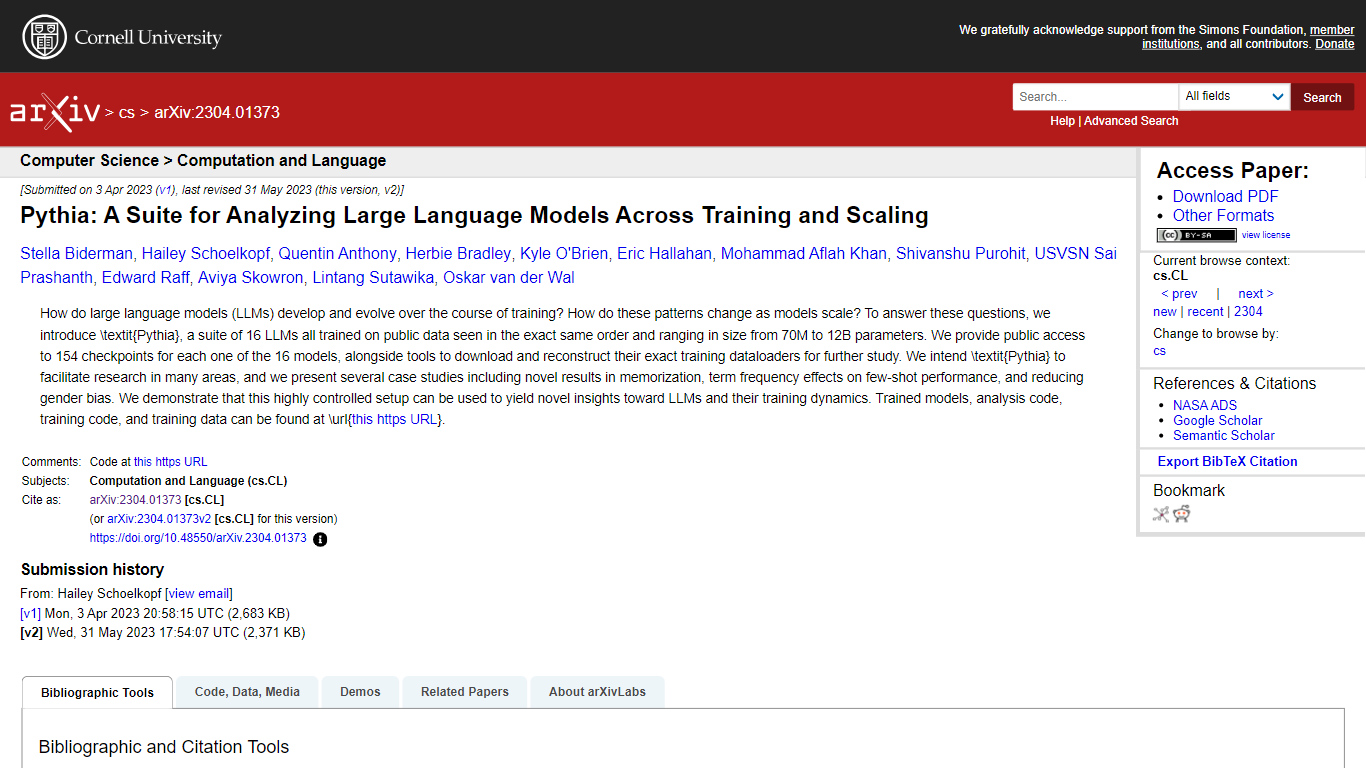Pythia vs GPT-4
Explore the showdown between Pythia vs GPT-4 and find out which AI Large Language Model (LLM) tool wins. We analyze upvotes, features, reviews, pricing, alternatives, and more.
When comparing Pythia and GPT-4, which one rises above the other?
When we contrast Pythia with GPT-4, both of which are exceptional AI-operated large language model (llm) tools, and place them side by side, we can spot several crucial similarities and divergences. In the race for upvotes, GPT-4 takes the trophy. The number of upvotes for GPT-4 stands at 9, and for Pythia it's 6.
Not your cup of tea? Upvote your preferred tool and stir things up!
Pythia

What is Pythia?
Pythia is an extensive suite designed to analyze the development and scaling of large language models (LLMs). It comprises 16 models, each trained with public data in a consistent order, featuring sizes ranging from 70 million to 12 billion parameters. The project provides public access to 154 checkpoints per model, as well as tools to reproduce training data loaders for in-depth research. Pythia aims to aid various research domains with case studies on topics like memorization, the impact of term frequency on few-shot learning, and strategies for mitigating gender bias. This carefully controlled environment offers unique insights into the training dynamics of LLMs. The suite includes trained models, analysis code, training code, and data, all accessible via its GitHub repository.
GPT-4

What is GPT-4?
GPT-4 is the latest milestone in OpenAI’s effort in scaling up deep learning.
GPT-4 is a large multimodal model (accepting image and text inputs, emitting text outputs) that, while less capable than humans in many real-world scenarios, exhibits human-level performance on various professional and academic benchmarks. For example, it passes a simulated bar exam with a score around the top 10% of test takers; in contrast, GPT-3.5’s score was around the bottom 10%. We’ve spent 6 months iteratively aligning GPT-4 using lessons from our adversarial testing program as well as ChatGPT, resulting in our best-ever results (though far from perfect) on factuality, steerability, and refusing to go outside of guardrails.
GPT-4 is more creative and collaborative than ever before. It can generate, edit, and iterate with users on creative and technical writing tasks, such as composing songs, writing screenplays, or learning a user’s writing style.
Pythia Upvotes
GPT-4 Upvotes
Pythia Top Features
Suite for Analysis:** A comprehensive set of tools for conducting research on LLM training and scaling.
Size Variety:** LLMs ranging from 70M to 12B parameters, providing insights across different model scales.
Public Checkpoints:** Access to 154 checkpoints for each of the 16 LLMs.
Research Facilitation:** Tools and code for reconstructing training dataloaders to promote further study in the field.
Case Studies:** Presentation of case studies including findings in memorization, few-shot performance, and bias reduction.
GPT-4 Top Features
No top features listedPythia Category
- Large Language Model (LLM)
GPT-4 Category
- Large Language Model (LLM)
Pythia Pricing Type
- Freemium
GPT-4 Pricing Type
- Freemium
